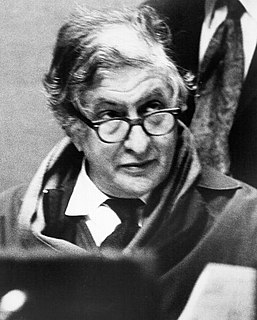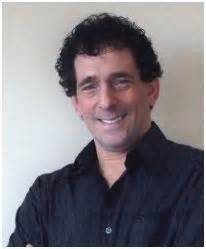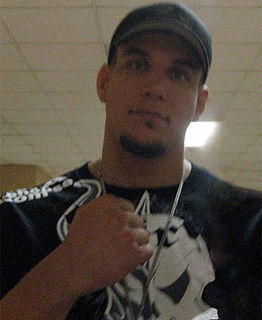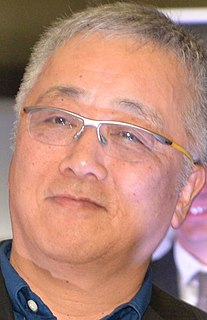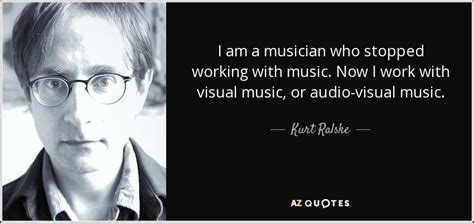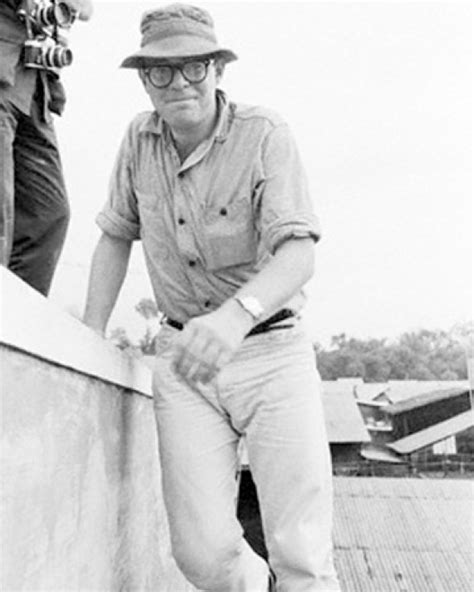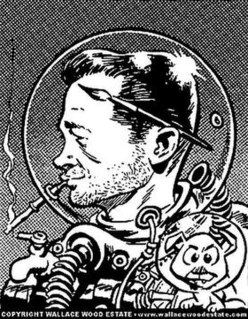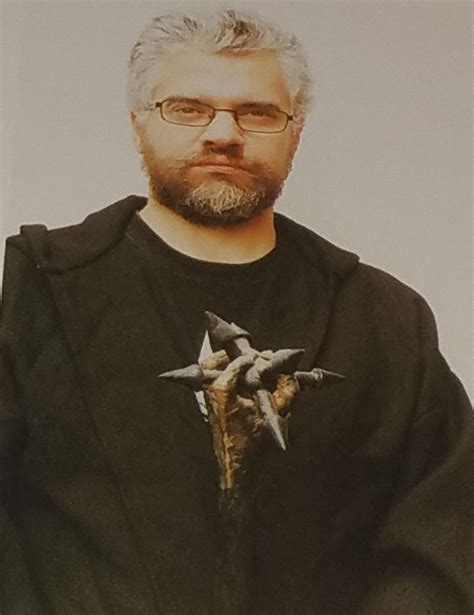Top 1071 Interrogation Techniques Quotes & Sayings - Page 18
Explore popular Interrogation Techniques quotes.
Last updated on April 21, 2025.
You've got to be a good reader. So whatever genre that you're interested in, read a lot of books about it and it's better than any kind of writing class you'll ever take. You will absorb techniques and then in a lot of cases you can just start writing using the style of the book or the author that you admire and then your own style will emerge out of that. Be a diligent reader and then try to write seriously, professionally and approach everything in writing in a professional way.
Captain Crawford didn't like the idea of any kind of murder, but he went at it patiently and honestly and with none of the stupidity and bombast and rubber-hose techniques that Los Angeles crime fiction writers had led me to expect. I'd gotten the impression that unless a gifted amateur in love with the lady got himself almost beaten to a pulp and practically inside the lethal gas chamber before he unmasked the venal and brutalized constabulary, any innocent bystander they could get their hands on was a gone duck.
The world has progressed to the point where it's most powerful force is public opinion. And I believe that in this world it is not the great book or epic play, as once was the case, that will shape that opinion, but those who understand mass media and the techniques of mass persuasion...We must not just believe in what we sell. We must sell what we believe in. And we must pour a vast energy into those causes.
It was a revolution, but now it is an evolution. People know more ingredients, people know more techniques, and people look for more ingredients they've never looked for before. In the '80s, you couldn't find raw tuna in any restaurant that wasn't Japanese. Now, you can't find any restaurant without it or sashimi.
More directly linked to the impact of technology, it involves the gradual appearance of a more controlled and directed society. Such a society would be dominated by an elite whose claim to political power would rest on allegedly superior scientific know-how. Unhindered by the restraints of traditional liberal values, this elite would not hesitate to achieve its political ends by using the latest modern techniques for influencing public behavior and keeping society under close surveillance and control.
The automobile, practical since 1906, was proceeding to disintegrate and stamp anew the pattern of communication, manners, and city life in the United States, by 1918; before long, men would begin to see that the automobile, and the mass production techniques which made its possible, could alter the national character and morality more thoroughly than could the most absolute of tyrants. As a mechanical Jacobin, it rivaled the dynamo. The productive process which made these vehicles cheap was still more subversive of the old ways than was the gasoline engine itself.
The motion picture is like a picture of a lady in a half-piece bathing suit. If she wore a few more clothes, you might be intrigued. If she wore no clothes at all, you might be shocked. But the way it is, you are occupied with noticing that her knees are too bony and that her toenails are too large. The modern film tries too hard to be real. Its techniques of illusion are so perfect that it requires no contribution from the audience but a mouthful of popcorn.
The definition of insanity is doing the same thing with the same result over and over again, expecting something different. The left just spent how many months trying to destroy Donald Trump, trying to impugn Donald Trump with every weapon they had, with every trick in their book, every tactic that has been successfully used by the media to destroy Republican candidates over the years. It's in their playbook. They brought it all out. Every bit of it blew up in their face; all of it failed. And yet they continue with the same tried and true and worn-out techniques to discredit Trump.
The positive thing about collaborating is that I cannot get distracted by coding work, because I cannot waste the other collaborator's time in the same way as I can my own. And it's always good to learn how the other person works, learn about techniques, learn social things like: how do you communicate with another person? The music I make with other people I'm much more confident about, I'm a little bit less judgemental of the outcome than with my own stuff because I know it's not only me, it's a more outside of me. Sometimes I even like them better than my own tracks.
Combinatorics is an honest subject. No adèles, no sigma-algebras. You count balls in a box, and you either have the right number or you haven't. You get the feeling that the result you have discovered is forever, because it's concrete. Other branches of mathematics are not so clear-cut. Functional analysis of infinite-dimensional spaces is never fully convincing; you don't get a feeling of having done an honest day's work. Don't get the wrong idea - combinatorics is not just putting balls into boxes. Counting finite sets can be a highbrow undertaking, with sophisticated techniques.
Testing by itself does not improve software quality. Test results are an indicator of quality, but in and of themselves, they don't improve it. Trying to improve software quality by increasing the amount of testing is like trying to lose weight by weighing yourself more often. What you eat before you step onto the scale determines how much you will weigh, and the software development techniques you use determine how many errors testing will find. If you want to lose weight, don't buy a new scale; change your diet. If you want to improve your software, don't test more; develop better.
If I were twenty or thirty years younger, I would start afresh in this field with the certainty of accomplishing much. But I should have to learn from the bottom up, forgetting the theatre entirely and concentrating on the special medium of this new art. My mistake, and that of many others, lay in employing "theatrical" techniques despite every effort to avoid them. Here is something quite, quite fresh, a penetrating form of visual poetry, an untried exponent of the human soul. Alas, I am too old for it!
I'm very pessimistic about that, no matter how hard we may try. The Chinese market is huge, but out of last year's $2 billion box office, $1.8 billion was taken in by foreign movies, and just $200 million by our own movies, no matter how much we have learned of their techniques, or their good practices. The Hollywood movies imported into China are all good movies; does the U.S. make lousy movies? Yes, too many lousy movies, but the imports are good films, so how can they not be box office hits? They're all hits.
As a composer I might class myself as a Neo-Romantic, inasmuch as I have always regarded music as a highly personal and emotional form of expression. I like to write music which takes its inspiration from poetry, art and nature. I do not care for purely decorative music. Although I am in sympathy with modern idioms, I abhor music which attempts nothing more than the illustration of a stylistic fad. And in using modern techniques, I have tried at all times to subjugate them to a larger idea or a grander human feeling.
In 1945 J.A. Ratcliffe ... suggested that I [join his group at Cavendish Laboratory, Cambridge] to start an investigation of the radio emission from the Sun, which had recently been discovered accidentally with radar equipment. ... [B]oth Ratcliffe and Sir Lawrence Bragg, then Cavendish Professor, gave enormous support and encouragement to me. Bragg's own work on X-ray crystallography involved techniques very similar to those we were developing for "aperture synthesis", and he always showed a delighted interest in the way our work progressed.
Milton Erickson was a master at using experiential techniques to elicit strengths that were previously dormant. Mills and Crowley have masterfully captured essential elements of Erickson's work and applied it to therapy with children. Easy to read, meticulously referenced, and filled with inspiring case studies, Therapeutic Metaphors for Children and the Child Within has now been updated with important new findings, and it's essential reading for clinicians who work with children as well as for those who want to improve their use of therapeutic metaphor.
We were trying to do as much science as we could because that was the main purpose of the international space station. But without the shuttle to bring up heavy laboratory equipment and bring back samples, we were limited by what we could do, but I was proud that we actually accomplished more science that was planned for the flight. And I got a chance to do two Russian spacewalks on that flight, I had become an expert in U.S. spacewalks and using U.S. suits and techniques, and this was a chance to put on a Russian Orlan suit and do two construction space flights outside of the space station.
Caterpillar was quite important because that was the first manufacturing industry that used Reaganite strike-breaking techniques. They illegally called in scabs to break a major strike. It was reported pretty well in the Chicago Tribune, who pointed out something very interesting. They said that the workers got very little support in Peoria when scabs illegally broke the strike, and that was particularly striking because that whole community had been built up by the union - it was a union-based community.
It may be true that encryption makes certain investigations of crime more difficult. It can close down certain investigative techniques or make it harder to get access to certain kinds of electronic evidence. But it also prevents crime by making our computers, our infrastructure, our medical records, our financial records, more robust against criminals. It prevents crime.
No art takes places without inspiration. Every artist also needs effective knowledge of his or her tools (e.g., does a certain brush function well with a particular kind of paint?). What's more, artists need effective techniques for using those tools. Likewise, to express ourselves skillfully with maximum efficiency and minimum effort, we need to investigate the most effective ways of using the mind and body since, in the end, they are the only "tools" we truly possess in life.
There's one uneasy borderline between what is external and what is internal, and this borderline is defined exactly by the sense organs and the skin and the introduction of external things within my own body. Consciousness is altered by physical events and physical objects, which impinge upon my sense organs, or which I introduce into my body. Now the name traditionally given to external objects or processes which change you internally is sacrament. Sacraments are the visible and tangible techniques for bringing you close to your own divinity.
The good things at the U.S. health care system are that we have a well-trained labor force, particularly physicians; I don't think any nation trains doctors better. We have the latest technology, simply because we throw so much money at it. We are really technology-hungry in this country. That's a good thing. Our system more treats patients like customers, which is a good thing; that it's very customer-friendly. And it's very innovative, both in the products we use, in the techniques we use and the organizational structures we use. Those are all very good things, highly competitive.
If you break down actual techniques and knowledge of MMA, I am more knowledgeable than the head coaches of all the guys I'm fighting. Forget the guys I'm fighting. Obviously I know more than they do, nobody is going to question that. But I also know more than the guys who are teaching them about fighting. I could teach them.
During the production of the Steamboy film, what I put my most effort in was the process of layouts, and I did my best to check every detail. Once this process is done precisely, we will get great backgrounds from our art team. This makes the team effort fun. I can't create a movie by myself. It is worthy only because many staff bring new ideas and techniques. I think the appeal of being the director is to encounter such new things, which I don't possess. It is absolutely wonderful to create something new based on teamwork. It is something that I couldn't appreciate in my cartoonist days.
The most refined skills of color printing, the intricate techniques of wide-angle photography, provide us pictures of trivia bigger and more real than life. We forget that we see trivia and notice only that the reproduction is so good. Man fulfils his dream and by photographic magic produces a precise image of the Grand Canyon. The result is not that he adores nature or beauty the more. Instead he adores his camera - and himself.
Rules of Play is an exhaustive, clear, cogent, and complete resource for understanding games and game design. Salen and Zimmerman describe an encyclopedia of game design issues, techniques, and attributes. In particular, they analyze the elements that can make a game experience richer, more interesting, more emotional, more meaningful, and, ultimately, more successful. It should be the first stop you make when learning about game design.
Expression is never considered a given, and it is in fact maybe not what's most interesting about making art. Making art, since 1960 or something, is many things: it's a way of doing philosophy, it's a way of opening a dialogue, it's a way of putting a fact or a question out into the world, or a way of drawing people into new relationships, or a way of interrogating history. It's all these other sorts of strategies or techniques or processes that are really interesting and really valuable.
Unlike the authors of such warrior classics as The Art of War and The Book of the Five Rings, which accept the inevitability of war and emphasize cunning strategy as a means to victory, Morihei understood that continued fighting-with others, with ourselves, and with the environment-will ruin the earth. “The world will continue to change dramatically, but fighting and war can destroy us utterly. What we need now are techniques of harmony, not those of contention. The Art of Peace is required, not the Art of War.
How can there be democracy if the leadership in the United States and Britain don't uphold the values which my father's generation fought the Nazis, millions of people gave their lives against the Soviet Union's regime, didn't they? Because of what? Democracy. And what democracy meant. No torture, no camps, no detention forever or without trial, without charges. In solitary confinement. Those techniques which are not just alleged, they have actually been written about by the FBI. I don't think it's being far left - I hope that I'm wrong to consider that it's far left to uphold the rule of law.
When I created Chipotle in 1993, I had a very simple idea: Offer a simple menu of great food prepared fresh each day, using many of the same cooking techniques as gourmet restaurants. Then serve the food quickly, in a cool atmosphere. It was food that I wanted, and thought others would like too. We've never strayed from that original idea. The critics raved and customers began lining up at my tiny burrito joint. Since then, we've opened a few more.
We never announced a scorched-earth policy; we never announced any policy at all, apart from finding and destroying the enemy, and we proceeded in the most obvious way. We used what was at hand, dropping the greatest volume of explosives in the history of warfare over all the terrain within the thirty-mile sector which fanned out from Khe Sanh. Employing saturation-bombing techniques, we delivered more than 110,000 tons of bombs to those hills during the eleven-week containment of Khe Sanh.
I'm a strong believer in telling stories through a limited but very tight third person point of view. I have used other techniques during my career, like the first person or the omniscient view point, but I actually hate the omniscient viewpoint. None of us have an omniscient viewpoint; we are alone in the universe. We hear what we can hear... we are very limited. If a plane crashes behind you I would see it but you wouldn't. That's the way we perceive the world and I want to put my readers in the head of my characters.
I would INSIST this record is in NO WAY COLD influenced. Don't get me bent though, I have been a huge fan of Cold from day one. One of the best most awesome song writers. Kelly has in OWN sound, He recorded on the POINT OF ORIGIN Record so there, of course, will be something that familiarizes the Cold sound. But Allele is much heavier, and just kind of warmer, different techniques and a different sound all together. Allele I think is more intense.
There is a theology to gardening that few of us consider, but to understand this theology means relinquishing much control - our arsenal of books, techniques, tools, chemicals, fertilizers, fancy hybrids, and expectations. Yet, that is exactly what we must do if we are to fully embrace a more spiritual form of gardening. As a part of Nature we must learn to enter our garden as if it were truly sacred, we must learn to enter with humility.
Writers imagine that they cull stories from the world. I'm beginning to believe that vanity makes them think so. That it's actually the other way around. Stories cull writers from the world. Stories reveal themselves to us. The public narrative, the private narrative - they colonize us. They commission us. They insist on being told. Fiction and nonfiction are only different techniques of story telling. For reasons that I don't fully understand, fiction dances out of me, and nonfiction is wrenched out by the aching, broken world I wake up to every morning.
Our teaching of mathematics revolves around a fundamental conflict. Rightly or wrongly, students are required to master a series of mathematical concepts and techniques, and anything that might divert them from doing so is deemed unnecessary. Putting mathematics into its cultural context, explaining what is has done for humanity, telling the story of its historical development, or pointing out the wealth of unsolved problems or even the existence of topics that do not make it into school textbooks leaves less time to prepare for the exam. So most of these things aren't discussed.
In magic I believe I can control certain elements of my environment, I believe I can control certain aspects of my endocrine system, through imagination, visualization, breathing techniques, which in a sense come into the scientific aspects. So magic is a combination, its a soup, a delightful combination of art, imagination, visualization, fantasy, with a healthy dose of solid basis, because it is a science. The thing is we've lost the keys.
Being an actor in TV or movies is different. A film or TV actor, if put in theatre, won't know certain dimensions, while a theatre actor won't know certain things when he comes before the camera. So I think a film actor can learn emoting from this theatre counterpart, while the theatre actor can learn about camera techniques from the film actor.
If you go to a master to study and learn the techniques, you diligently follow all the instructions the master puts upon you. But then comes the time for using the rules in your own way and not being bound by them....You can actually forget the rules because they have been assimilated. You are an artist. Your own innocence now is of one who has become an artist, who has been, as it were, transmuted.... You can't have creativity unless you leave behind the bounded, the fixed, all the rules.
The Obama administration was filled with people that had deep resentment for people successful in the private sector, in business or what have you, with no way of understanding them or relating to them at all, and no desire to. Much of the Washington establishment, particularly the Democrat side of it, has the same view of American business and the private sector. And here comes Donald Trump entering their world, and they are not equipped to understand how he operates or what he's doing. They're plugging him and his business techniques into their political models, and it doesn't work.
. . . the example given by the Nazi regime as to the ability of a modern state to destroy human lives with the same techniques used by modern industry, employing the bureaucratic apparatus readily available to any modern state, is one that can hardly be ignored. Because although history may not repeat itself, it is rare that anything introduced to human history is not used again. Whether the Holocaust was unique or not in terms of its precedents is one question; whether it will remain so is quite another.
Magic is a set of techniques and approaches which can be used to extend the limits of Achievable Reality. Our sense of Achievable Reality is the limitations which we believe bind us into a narrow range of actions and successes - what we believe to be possible for us at any one time. In this context, the purpose of magic is to simultaneously explore those boundaries and attempt to push them back - to widen the 'sphere' of possible action.
Somebody must have sense enough to meet hate with love. Somebody must have sense enough to meet physical force with soul force. If we will but try this way, we will be able to change these conditions and yet at the same time win the hearts and souls of those who have kept these conditions alive a way as old as the insights of Jesus of Nazareth, as modern as the techniques of Mohandas K. Gandhi. There is another way.
I have my own set of survival techniques. I am patient. I know how to pack light. But my one might travel talent is that I can make friends with anybody. I can make friends with the dead. If there isn’t anyone else around to talk to, I could probably make friends with a four-foot-tall pile of sheetrock. That is why I’m not afraid to travel to the most remote places in the world, not if there are human beings there to meet. People asked me before I left, “do you have friends [there]?’ and I would just shake my head no, thinking to myself, But I will.
The Fed has one power that is unique to it alone: it enables the creation of money out of thin air. Sometimes it makes vast new amounts. Sometimes it makes lesser amounts. The money takes a variety of forms and enters the system in various ways. And the Fed does this through techniques such as open-market operations, changing reserve ratios, and manipulating interest rates, operations that all result in money creation.
The confidence in the unlimited power of science is only too often based on a false belief that the scientific method consists in the application of a ready-made technique, or in imitating the form rather than the substance of scientific procedure, as if one needed only to follow some cooking recipes to solve all social problems. It sometimes almost seems as if the techniques of science were more easily learnt than the thinking that shows us what the problems are and how to approach them.
There are certain records from the 80s and early 90s that you love because the songs are great, but you don't go to them as an example of great production. Over the last 20 years, myself and a lot of other musicians my age have tried to discover things in 50s, 60s, and 70s recording techniques that were lost or discarded. We've all been trying to crack this code. It's been an important period in the last 15 years, reclaiming some of those lost approaches to making records.
MapReduce has become the assembly language for big data processing, and SnapReduce employs sophisticated techniques to compile SnapLogic data integration pipelines into this new big data target language. Applying everything we know about the two worlds of integration and Hadoop, we built our technology to directly fit MapReduce, making the process of connectivity and large scale data integration seamless and simple.
The techniques are all means of dealing with one simple idea: She wrote it. (That is, the "wrong" person--in this case, female--has created the "right" value--i.e., art.)
Denial of Agency: She didn't write it.
Pollution of Agency: She shouldn't have written it.
Double Standard of Content: Yes, but look what she wrote about.
False Categorizing: She is not really she [an artist] and it is not really it [serious, of the right genre, aesthetically sound, important, etc.] so how could "she" have written "it"?
Or simply: Neither "she" nor "it" exists (simple exclusion).
People who spend a great deal of time in their gardens attest to the natural mindfulness that gardening requires. What could be more naturally mindful than weeding? It requires a great deal of sustained attention. Weeds need to be taken up with care: Pull too hard, and the weed breaks in your fingers, leaving the root to grow and spread. Different weeds need different techniques and, sometimes, tools. When we weed our gardens, we have to pay attention to where and how we walk and bend. Move too far in one direction or another, and we'll squash growing things.
No matter the specific techniques involved, historically mass surveillance has had several constant attributes. Initially, it is always the country’s dissidents and marginalized who bear the brunt of the surveillance, leading those who support the government or are merely apathetic to mistakenly believe they are immune. And history shows that the mere existence of a mass surveillance apparatus, regardless of how it is used, is in itself sufficient to stifle dissent. A citizenry that is aware of always being watched quickly becomes a compliant and fearful one.













